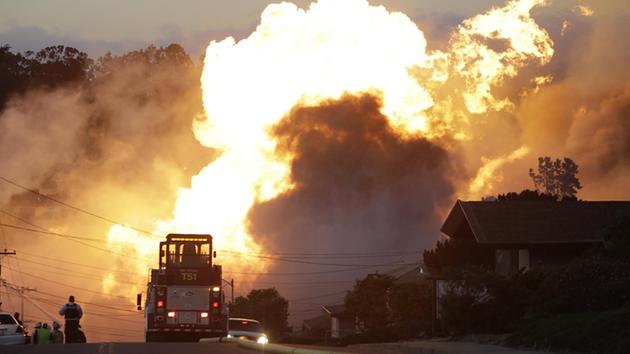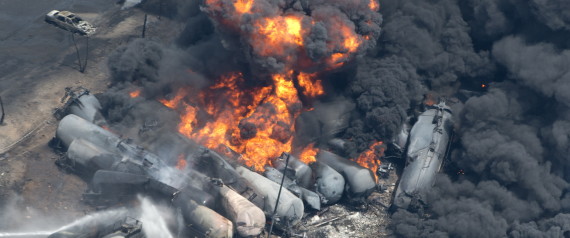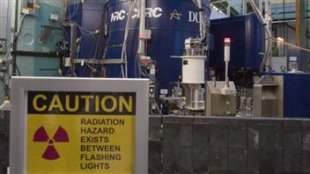Thirty-six years ago, Three Mile Island turned public opinion against nuclear power.
 The worst in history, right now still spewing after three months
and Los Angeles County and the state of California have declared emergencies
at Porter Ranch,
is the “natural” gas industry’s Three Mile Island.
The worst in history, right now still spewing after three months
and Los Angeles County and the state of California have declared emergencies
at Porter Ranch,
is the “natural” gas industry’s Three Mile Island.
Nuclear, too was touted as safe, clean, and infamously “too cheap to meter”. It turned out to be none of those things, and neither is fracked methane. Three Mile Island alone didn’t stop the thousands of nukes President Nixon promised, but it sure helped. The Porter Ranch disaster has already lasted far longer, had worse direct effects, and is in the nation’s second-largest metropolitan area.
 Plus TMI was the first U.S. civilian nuclear accident.
The “natural” gas industry has leaks, corrosion, fires, explosions, and now earthquakes monthly and sometimes daily.
Sure, the shadow of nuclear war hung over the nuclear power industry, but the monthly fireballs from methane explosions hangs over the natural gas industry.
The 2010 San Bruno, California explosion is back in the news because, says AP 13 January 2015:
PROSECUTORS: PG&E RESISTED RECORD-KEEPING CHANGE AFTER SAN BRUNO BLAST.
Plus TMI was the first U.S. civilian nuclear accident.
The “natural” gas industry has leaks, corrosion, fires, explosions, and now earthquakes monthly and sometimes daily.
Sure, the shadow of nuclear war hung over the nuclear power industry, but the monthly fireballs from methane explosions hangs over the natural gas industry.
The 2010 San Bruno, California explosion is back in the news because, says AP 13 January 2015:
PROSECUTORS: PG&E RESISTED RECORD-KEEPING CHANGE AFTER SAN BRUNO BLAST.
 It’s time for a complete moratorium on all new natural gas projects,
like the moratorium on all new nuclear projects after Three Mile Island.
Instead, let’s get on with what we didn’t have back then:
solar and wind power already less expensive than any other sources of power,
far cleaner and safer, much faster to deploy, using no water, and requiring no eminent domain.
It’s time for a complete moratorium on all new natural gas projects,
like the moratorium on all new nuclear projects after Three Mile Island.
Instead, let’s get on with what we didn’t have back then:
solar and wind power already less expensive than any other sources of power,
far cleaner and safer, much faster to deploy, using no water, and requiring no eminent domain.
In 1962 President John F. Kennedy famously said: Continue reading









